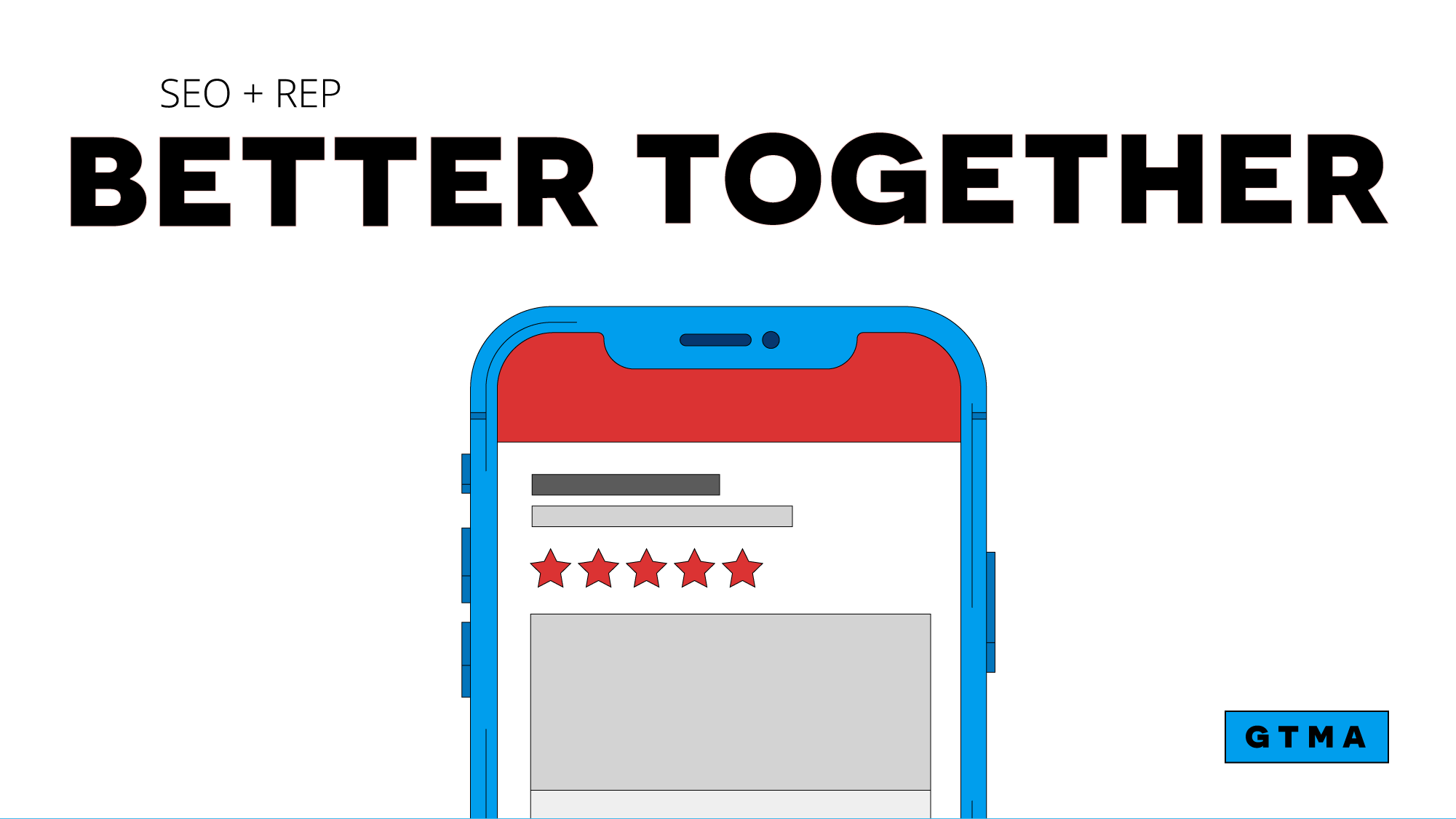
SEO & REPUTATION MARKETING BETTER TOGETHER
WHAT IS SEO, AND WHY DOES IT MATTER?
What relationship do SEO & reputation marketing efforts have to one another? A very close one! To understand how and why, let’s first take a closer look at SEO itself. SEO stands for search engine optimization. It’s a technique used to maximize exposure to the content on websites in order to achieve high results to organic (unpaid) search queries. Why does it matter to “SEO” your business listings and brand content? SEO is ultimately important for two basic reasons: 1) everyone searches online, and 2) there is a massive amount of information available across the internet. So it takes good SEO to compete for attention and win.
Search engines like Google and Microsoft Bing exist as a living index of everything on the web, and their purpose is to find and retrieve relevant results for each and every search query received. Today’s consumers are accustomed to searching online for everything – from driving directions to trending news, product information to personalized advice like “should I take out a loan?”. Google alone handles over a TRILLION unique searches a year! For each of those search queries, there may be dozens, hundreds, or even thousands of potential results that COULD be returned.
So how do the search engines index and rate all those possibilities? They use complex algorithms (formulas) and frequent check-ins across the web on all types of content from map listings to images, video, web copy, news articles, event calendars, social media profiles, review sites, shopping cart options and more. Plus, they do that on-demand and within microseconds to return results! It’s important to note that even with identical search strings from two different users, the search results will vary to provide content that is most relevant to each of them. The results are personalized for the searcher by tailoring to their prior search history, device type, geographic location, and more.
With SO MANY possibilities and personalized variations out there, it’s crucial that businesses ensure their online content is optimized so that search engines can properly sort, filter, rank, and return results. Simply put, you should care because people that search are broadcasting their intent to find information and/or take action! But if they can’t find your business or content online, you’ll miss the opportunity to meet that need.
SEO BASICS: ON-SITE VS. OFF-SITE
There are two main types of SEO work: On-site and Off-site. “On-site” SEO refers to copy and code directly on your website, and “off-site” SEO is any business information or content that appears on third-party sites; NAP (name, address, phone) info in directories, entries on membership & association lists, social profiles, reviews, content links, etc. There are benefits to both. Your website is owned virtual real estate, so it should be optimized to act as the online hub for all of your marketing efforts. But outside sources can lend much-needed volume, authority, and credibility so it’s also important to optimize off-site and maximize brand awareness.
A comprehensive SEO plan will address BOTH on-site and off-site optimizations. It’s just not good enough to only do onsite work on your website…now SEO campaigns should increasingly include off-site items like original content creation, online review management, and enhanced advertising opportunities. You need to address off-site SEO in order to gain referral traffic from larger sources particularly if your website is relatively new, your marketplace is crowded, or your business hasn’t existed long enough to garner thousands of visits each month.
SEO & REPUTATION MARKETING – BETTER TOGETHER
Like peanut butter and jelly, SEO and reputation marketing services bring out the best in one another. Initial SEO efforts help to optimize your website and business information listings across the web. Reputation management takes that one step further by capturing reviews on your business across all major review platforms. At GTMA, that service includes dashboard access and custom “white-glove” third-party management and responses to those reviews. Reputation management is a marketing effort because it establishes a long-term positive online presence for your brand which aids in search rankings and provides a connection point from the on-site team to the online information. It’s a blend of customer service, online public relations, and account management that absolutely impacts your total SEO efforts.
SETTING SEO EXPECTATIONS: SHORT-TERM STRATEGY VS. LONG-TERM
Websites only get crawled and indexed periodically (especially those with under 10,000 visits per month on average) so improving SEO organically is a long-term strategy. It may take three to six months or more to really begin to see ranking results improve after making on-site SEO changes to site copy, images, or coding. That’s another reason that a balanced approach can help. Off-site optimizations such as increased social posts, improved reputation scores on review sites, or additional referral links to your site can help to prove results more quickly.
Need an even shorter-term strategy to get seen and ranked in search results? A related but different tactic is paid search (a.k.a. Pay-per-click, “PPC”, search engine marketing, or “SEM”). Any way you spell it, paid search is a more immediate method to get shown for specific keywords by purchasing advertising placements as “sponsored” (paid) results.
NO “BLACK HATS” HERE!
Forget stuffing keywords in transparent text onto your pages, or trying to game the system in ways that fool Google and Microsoft’s latest algorithms. Those sorts of spammy tactics, often referred to as “black hat SEO”, only run the risk of having your site penalized by the search engines. That can be a long and arduous process to overcome! Instead, create original content that provides value to the end-user that is searching! That’s what good SEO is all about: serving up results based on signals of relevance, recency, and reputation.